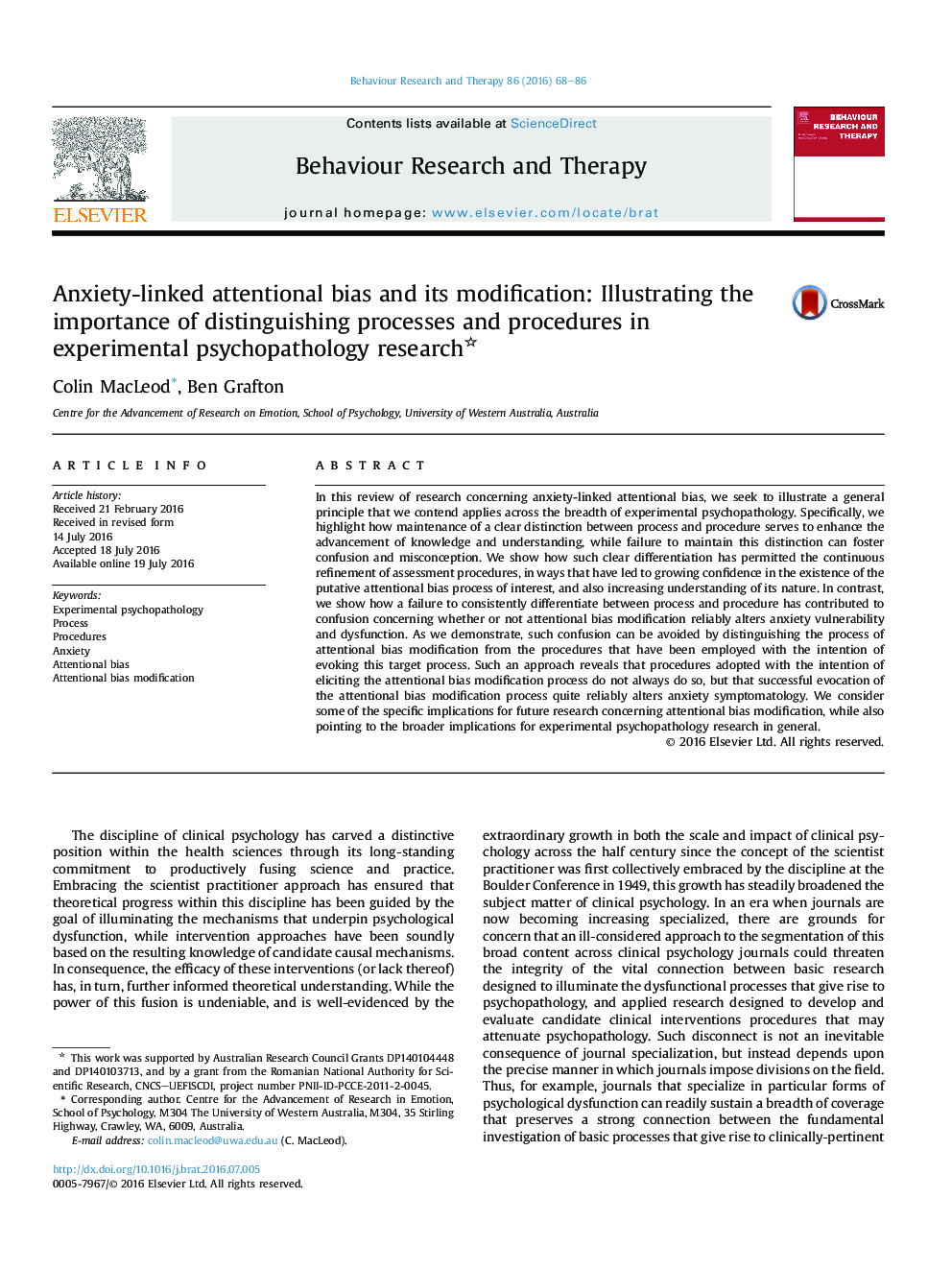| Article ID | Journal | Published Year | Pages | File Type |
|---|---|---|---|---|
| 5038338 | Behaviour Research and Therapy | 2016 | 19 Pages |
â¢Reviews research on anxiety-linked attentional bias and its modification.â¢Illustrates need to distinguish procedures/processes in assessment and intervention.â¢Shows that evocation of attentional bias modification (ABM) process impacts anxiety.â¢Shows that procedures intended to evoke ABM process do not consistently do so.â¢Explains inconsistent emotional impact of procedures intended to evoke ABM process.
In this review of research concerning anxiety-linked attentional bias, we seek to illustrate a general principle that we contend applies across the breadth of experimental psychopathology. Specifically, we highlight how maintenance of a clear distinction between process and procedure serves to enhance the advancement of knowledge and understanding, while failure to maintain this distinction can foster confusion and misconception. We show how such clear differentiation has permitted the continuous refinement of assessment procedures, in ways that have led to growing confidence in the existence of the putative attentional bias process of interest, and also increasing understanding of its nature. In contrast, we show how a failure to consistently differentiate between process and procedure has contributed to confusion concerning whether or not attentional bias modification reliably alters anxiety vulnerability and dysfunction. As we demonstrate, such confusion can be avoided by distinguishing the process of attentional bias modification from the procedures that have been employed with the intention of evoking this target process. Such an approach reveals that procedures adopted with the intention of eliciting the attentional bias modification process do not always do so, but that successful evocation of the attentional bias modification process quite reliably alters anxiety symptomatology. We consider some of the specific implications for future research concerning attentional bias modification, while also pointing to the broader implications for experimental psychopathology research in general.
